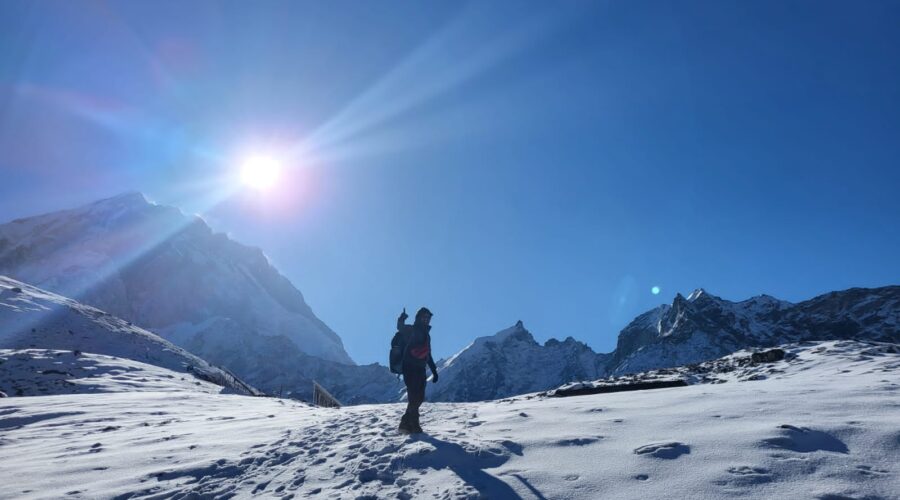Overview of the Trek The Sleep at Everest Base Camp Trek is a remarkable journey designed for trekkers who want to experience the thrill of staying at the base of the world’s highest peak. This trek combines the adventure of high-altitude trekking with the unique opportunity to spend a night at Everest Base Camp. You’ll trek through the scenic Khumbu region, visiting key landmarks such as Namche Bazaar and Tengboche Monastery, while enjoying the comfort of well-maintained lodges and tents. The trek culminates with a memorable night at Everest Base Camp, followed by a sunrise hike to Kala Patthar for stunning panoramic views of Everest and its neighboring peaks.
On this trek, you can expect an exhilarating and immersive experience in the Everest region. The trek offers a unique opportunity to stay overnight at Everest Base Camp, providing a rare and memorable perspective of this iconic location. You’ll trek through diverse landscapes, including lush forests, high-altitude deserts, and glacial valleys. The journey includes visits to culturally rich villages and monasteries, as well as breathtaking views of Everest and surrounding peaks. Accompanied by experienced guides and porters, you’ll enjoy comfortable accommodations and receive support throughout the trek, ensuring a safe and enjoyable adventure.
Cost Included:
Cost Excluded:
Accommodation during the trek combines the comfort of well-maintained lodges with the unique experience of camping at Everest Base Camp. Lodges offer clean rooms with warm bedding, private bathrooms, and beautiful views of the surrounding landscapes. At Everest Base Camp, you will stay in comfortable tents, specially set up to provide a cozy environment amid the rugged terrain.
Travel insurance is crucial for this trek, providing coverage for medical emergencies, trip cancellations, and high-altitude trekking. Ensure your policy includes emergency evacuation and altitude-related issues. This insurance offers protection and peace of mind during your high-altitude adventure.
Yes, you can receive a refund. However, you must report your cancellation at least 7 days prior to the trek. This allows us to make the necessary adjustments and offer your spot to another adventurer. Please contact our customer service team to initiate the refund process.
Yes, you can change the travel date. However, please ensure that you make the request at least 7 days before the scheduled trek. To change your travel date, please contact our customer service team as soon as possible.
Yes, you can make changes to your accommodation. If you choose to upgrade or downgrade your accommodation, it will affect the pricing of the package accordingly. Please contact our customer service team to discuss your preferences and any associated cost adjustments.
It depends on you. If you can handle your luggage weight, then there is no need to hire a porter. However, if you prefer an easier trek without the burden of carrying your gear, we suggest hiring a porter. We offer the option to add a porter to your package for your convenience.
Yes, insurance is required for any rescue operations or medical emergencies that may arise due to high altitude or breathing problems. Having insurance ensures that you are covered in case of unforeseen circumstances and can receive the necessary assistance promptly. Please make sure to arrange appropriate travel insurance before embarking on your trek.

